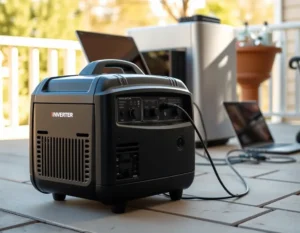
En el mundo moderno, donde la electricidad es fundamental para nuestras actividades diarias, las interrupciones eléctricas son un gran inconveniente, pueden afectar nuestra productividad y
How many appliances are you using simultaneously? If you are at home, you probably have the television on, the radio connected, the occasional phone charging, perhaps the washing machine running, a light bulb on... Or maybe, being aware of your energy consumption, you know why it is advisable to save energy.
We are used to having easy and immediate access to energy. We almost take it for granted. We don't worry about it except when the too expensive electricity bill arrives and we blame ourselves. We decided to reduce consumption. But that impulse lasts only a few days and then we go back to being wasteful.
To change that habit of spending too much electricity, you may need to find other reasons to save energy. Here are the main reasons to save energy. In addition, you will learn the benefits of unplugging your appliances and how to save energy without unpleasantly compromising your lifestyle. Stay and turn off the light!
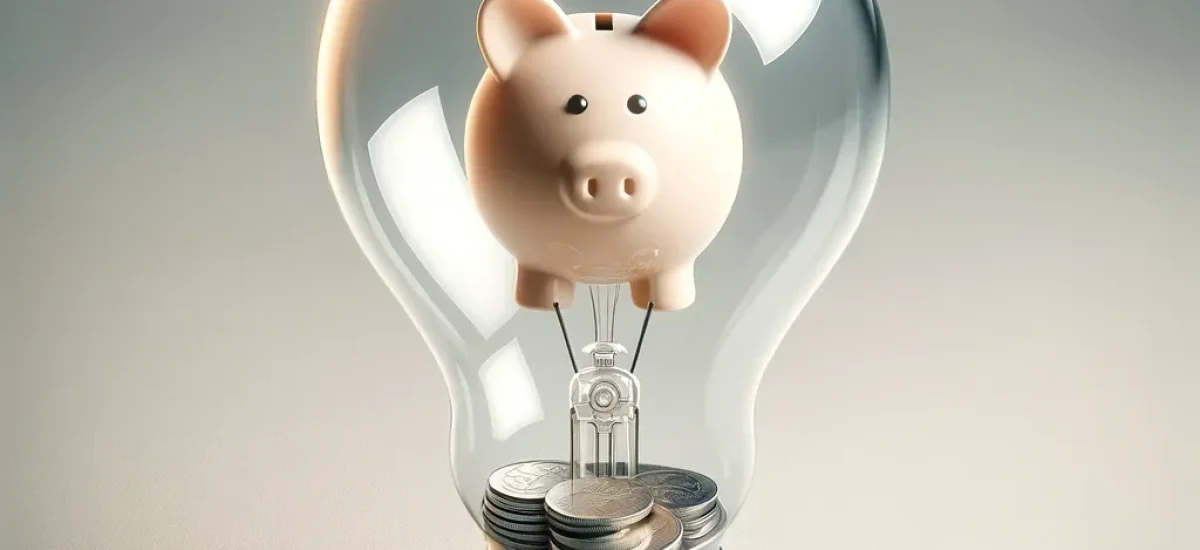
There are actually many reasons why saving energy is a great idea. Surely you have already imagined some, such as reducing our environmental footprint or saving money, but there are others that -believe it or not- benefit you directly. So let's meet them.
Perhaps it has happened to you that you take the bill from the company that provides you with the electricity service and you find yourself with a very high value that you have to pay.
You look at the invoice and see, surprised, a number of letters and symbols that you do not understand; but what you do understand is that this large amount of money corresponds proportionally to an amount of current consumed.
You should know that there is an international measure with which electricity companies quantify electrical energy consumption: the kWh. This unit represents the amount of energy used (kW) times the amount of time it was used (Hours). If you consume a lot of kWh, they charge you a lot of money; if you consume little, they charge you little.
But you would be fooling yourself if you believed that the best solution to save energy is to avoid the use of any appliance as much as possible. Well, there are appliances that spend more than others; so it is necessary to know its technical sheet and look for the most energy efficient ones.
For example, a TV with LED technology consumes around 25 to 40% less energy than an LCD TV of the same size. And so it is with refrigerators, irons, microwave ovens and many other devices.
That is, you don't need to radically eliminate any use of electrical appliances; rather, you must think intelligently about its use.
Every time you get up from the living room and leave the television on, or every time you go to sleep with the air conditioning running full blast, consider that the money you will end up paying for those whims can be invested or spent in another way.
Very surely you remember that at school, in physics class, they insisted on a particular phrase: "energy is not created or destroyed, it is only transformed." The electrical energy, then, must come from somewhere.
Since the 19th century we have managed to “tame” electricity. We have been able to put it at our service. We have designed ways to generate it to later use it wonderfully.
It is during the process of generating electrical energy that many resources are invested. Although it is true that there are renewable sources of energy, such as wind turbines or hydroelectric plants, it is still true that there is a considerable environmental impact.
It is known that a good part of the electrical energy consumed in the world is generated in thermoelectric plants, where fuel elements (such as coal or gas) are burned to heat water and thus move enormous turbidity that gives rise to the process of electromagnetic induction.
Although from the 1990s to the present, electricity consumption worldwide has been gradually declining (to an average of -1.5% per year), we continue to live in a highly technical world.
Our industrial and economic model is based on an idea of progress that contemplates an ever ascending development model. But this model is at odds with reality, since resources in nature are limited.
That's why, It is not a bad idea to consider the possibility of discouraging overexploitation and overconsumption of energy.
On the other hand, you may have noticed the night sky in big cities: you can never see the stars. There is always an orange glow that floats and affects the quality of life of nocturnal animal species.
In this sense, the noise of sound equipment has a direct impact on the noise pollution that we perceive on a daily basis.
Consider that you live in a highly sophisticated artificial world. And that's not bad: the technology is there for our use and enjoyment.
But consider the fact that you're inundated with electricity-consuming technology from the time you wake up to the time you go to bed. The abuse of technological equipment compromises your quality of life, although right now it may not seem like it.
Think, for example, of the nights when you stay up for hours watching videos on Tiktok, or stalking people on your favorite social network, or just staying up all night. The next day you wake up mentally exhausted. And it is not for less: your brain did not rest properly.
Things like this, or heating all your meals in the microwave, for example, put your health at risk. For this reason, it is recommended that, not only to save energy or money, you change your harmful habits that have to do with the abuse of technology.
You already know that it is not necessary to live like a hermit to save energy. You just have to review your habits and reformulate those in which you see that you are spending unnecessarily (and sometimes harmfully, too) electricity.
An unsuspected way of saving electricity is by using electrical appliances on reasonable hours and getting up early in the morning.
It sounds like a demanding sacrifice, but when you discover how your day is lengthened, allowing you to do more things, taking advantage of natural sunlight, you will realize that not only is the electricity bill cheaper, but your quality of life improves. incredibly.
On the other hand, you can use the appliances to their maximum capacity, to use them as few times as possible. You can fill the washing machine or the dishwasher, for example. You can also disconnect the equipment that you are not using, and thus avoid the so-called "phantom consumption".
Next you find a list of habits and actions you can take to save electricity. We also recommend that you consider acquiring alternative energy sources, such as solar panels, windmills, or Electric generators.

En el mundo moderno, donde la electricidad es fundamental para nuestras actividades diarias, las interrupciones eléctricas son un gran inconveniente, pueden afectar nuestra productividad y
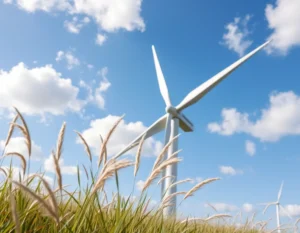
Las turbinas eólicas se han convertido en el emblema de la energía renovable, ofreciendo una solución sostenible y limpia frente a los combustibles fósiles. Sin

Cuando se trata de mantener la energía en situaciones de emergencia, durante viajes de campamento o en eventos al aire libre, un generador de 3500
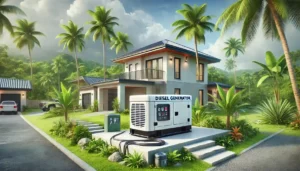
En tiempos de cortes de energía o desastres naturales, saber cómo usar un generador para alimentar una casa puede marcar la diferencia entre estar preparado
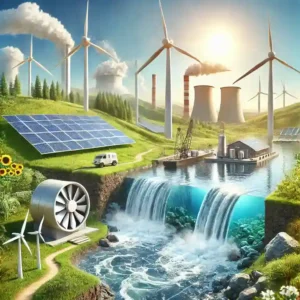
La búsqueda de energías alternativas se ha convertido en un pilar fundamental en la discusión sobre sostenibilidad y el futuro energético del planeta. Pero, ¿cuáles
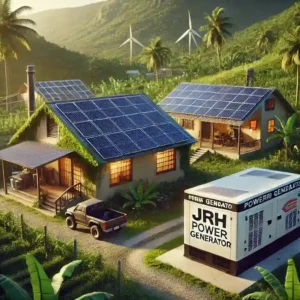
En un mundo donde la demanda de energía eléctrica sigue en aumento, las interrupciones de servicio y el costo creciente de la electricidad han impulsado